Review for Hakuoki: Series 2 Collection
Introduction
Series 1 of Hakuoki came to the UK last month, the debut of the anime adaptation of the fiercely popular (for a certain female demographic) videogame, and it pushed all my ‘meh’ buttons. It goes along, doing its own thing, at its weird fast-slow pace, telling its historical supernatural mash-up of a story, and I have to say that while I watched each episode, enjoyed them too, I was never really enthused by the show. I’m in a minority by the way, as Hakuoki has spawned three series, OVA episodes, movie spin-offs, and even live theatrical musicals. This is proper franchise stuff, and with that kind of weight behind it, it behoves me to take another shot to see just what makes it tick, or in the worst case, hopefully figure out what fails to make it click, with me at any rate.
Chizuru Yukimura came to the capital in search of her father, Kodo Yukimura, a doctor trained in Western techniques, who vanished from Kyoto. But when she arrived in the city, she wound up being chased by a couple of crazed, demonically powerful swordsmen, and then rescued by the Shinsengumi. But Chizuru had witnessed what no one should see, and the Shinsengumi policy is to eliminate the witnesses. Vice Commander Toshizo Hijikata deferred her execution though, and allowed her to stay on with the Shinsengumi while she searched for her father, on the understanding that her life may be forfeit at any point. The Shinsengumi were engaged in confronting the forces loyal to the Emperor, and opposing the Shogun, and Chizuru finds herself involved in historically significant events. But behind it all there was something more secret and supernatural at work, and it tied into the work that her father was doing for the Shinsengumi with a very unconventional drug, one whose side effects Chizuru had already witnessed. But far more ominous is Chizuru herself. Her past and her heritage aren’t conventional either, and that has come to the attention of three rather odd players in Kyoto’s politics.
At the end of the first series, that combination of supernatural forces and court politics came to a head, violence erupted in Kyoto, and the Shinsengumi were driven from the city, and forced back to Edo. At the start of this second series of Hakuoki, the survivors are healing from their wounds, while Hijikata tries to find a way to take back lost ground. But the Shogun’s plans for the Shinsengumi may lead them into far greater danger than they could have imagined.
Hakuoki Series 2 is still subtitled Demon of the Fleeting Blossom, but is further subtitled Record of the Jade Blood. Ten episodes are presented across two discs from MVM.
Disc 1
1. Like a Flame
2. The Corridor of Setbacks
3. The Distant Visage
4. Eternal Heartfelt Loyalty
5. A Fleeting Dream
Disc 2
6. The Shining Light of Daybreak
7. Blade of the Sun
8. Scattering Cherry Blossoms
9. The Blooming Hepatica
10. The Ephemeral Pale Cherry Blossom
Picture
Hakuoki is presented in 1.78:1 anamorphic widescreen in PAL format. The image is clear and sharp throughout, the animation is smooth, and the character designs come across well enough, which is the big selling point for this series. It’s replete with pretty boy designs meant to elicit girly-squee responses from the female target demographic, and you don’t want to skimp on the quality control there. Having said all that, the animation is no more than adequate in getting the story across, while the world design is pretty generic for this kind of historical anime. Where Hakuoki does impress is in its use of colour and the atmospheric use of light and shadow, and it does establish an effective mood.
Sound
You have the choice between DD 2.0 English and Japanese, along with translated subtitles and a signs only track. I went with the original language track and was satisfied, if not exactly surprised by the quality of the voice actor performances. This is a show where character archetypes abound, and the voice actors fill those archetypes without straying too far from the expectations of the audience. Still, Shinichirou Miki as Hijikata is bound to be a draw. The subtitling is a little better this time around, with no major flubs. There is the odd typo though, ‘navel’ instead of ‘naval’, ‘pincher’ instead of ‘pincer’, and ‘boy’ instead of ‘bay’
I gave the dub a try, and it’s one of those churn them out quick dubs, which stay pretty close to the subtitle translation, but you have to be a lot more forgiving than I to put up with it for long.
Extras
Hakuoki has come to the UK from Sentai via Hanabee, and the discs present their content with animated menus. Each episode is also followed by a translated English language, white text on black credit scroll. The only extras on disc 2 amount to the textless credit sequences.
Conclusion
Hakuoki Series 1 didn’t ring my bell when I reviewed it last month, and turned out to be something of a show less than the sum of its parts, combining supernatural aspects, historical recreation, and female-oriented fan service to less than engaging effect. But then what do I know? Hakuoki is big business in Japan, yielding videogames upon series, upon OVAs upon films, and no doubt the hope is that it will garner similar success in the West as well. For Hakuoki fans, you can rest assured that this second series, which actually concludes the Hakuoki story (the next series is a prequel), offers more of exactly the same as has come before. For me, I have to put up with the fact that this sequel offers more of exactly the same as has come before.
It does look deceptively promising in the first half of the show, as the historical recreation of the Shinsengumi story is put on the back burner for a few episodes to concentrate on, what for me was the more interesting aspect of the story, the supernatural storyline featuring the demons, and the elixir that turns warriors into ‘Furies’, vampire like creatures with immense strength and quick healing. Having lost to the Satsumi-Chouji forces in Kyoto, the Shinsengumi retreat to the Shogun’s stronghold in Edo, and it’s here that this storyline really develops, and more importantly the motivator of the events in the show, Chizuru’s father Kodo finally makes an appearance. He’s not the innocent victim or pawn in events that Chizuru made him out to be four years previously, and instead he turns out to be more twisted schemer than anything else. The story at this point develops naturally, and is well-paced, easy to follow.
Unfortunately we have to get back to those historical recreations, and around the halfway point of this series, it reverts to the history lesson as narrated by Chizuru format, months flash by in a matter of minutes, and the immediacy and emotional connect of the first four episodes is lost once more to a rather distant, and dry storytelling style. If you’ve read your Japanese late Shogun era history books, you’ll know that the Shinsengumi didn’t have a happy ending, and that is reflected in the events that transpire in the latter half of Record of the Jade Blood.
Then of course there is the fan service, which in this case is fan service for the female demographic in the form of the elegant young men of the Shinsengumi, who all wind up doting on the demure and nondescript female proxy character Chizuru. If Season 1 was all about traditional male warrior values, season 2 changes it up a gear by giving them all makeovers. For this season, they have all had haircuts, and don elegant Victorian European garb. It also becomes clear that Chizuru is something of a passive Mary Sue character. A ‘Mary Sue’ is a term arising from fan fiction denoting an idealised representation of the author, who comes in and magically saves the day when the regular characters unexpectedly fall short. Chizuru isn’t that character, but she is the one character who steadfastly stands behind the Shinsengumi, whose presence gives them an added reason to fight, and who always manages to cheer these elegant men up when their spirits begin to flag. In this sense she’s more an idealised representation of the target demographic, which is great, if you’re a member of the target demographic. Alas, I’m not.
This is where I simply cut and paste the final paragraph of my season 1 review, as it’s equally as applicable here...
Hakuoki is watchable, and twist my arm and I’ll even admit to having enjoyed an episode or two. You can one-episode more your way through the show, and at no point does it slow down or get tedious. The characters may conform to the pretty boy stereotypes, but that doesn’t make them any less entertaining. But the narrative is fragmented, and I found it impossible to engage with, while the story itself seems designed for fans of the Hakuoki video game first and foremost, and those comfortable with the late Shogun era history of Japan second. The average lay-person may find themselves lost at sea with this show much the same way that I did.
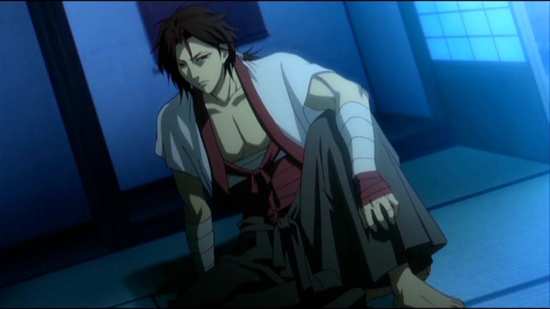
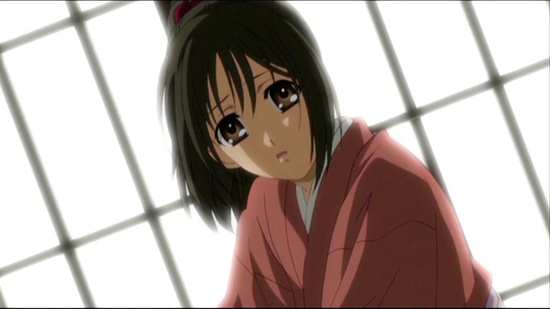
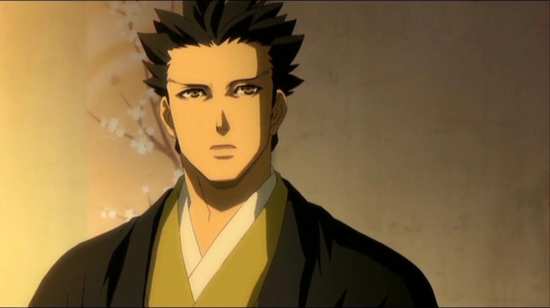
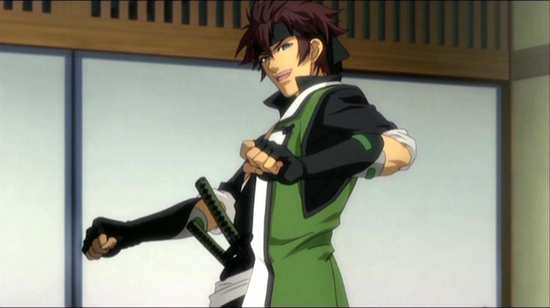
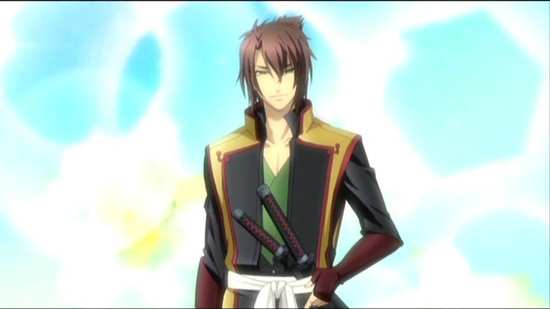
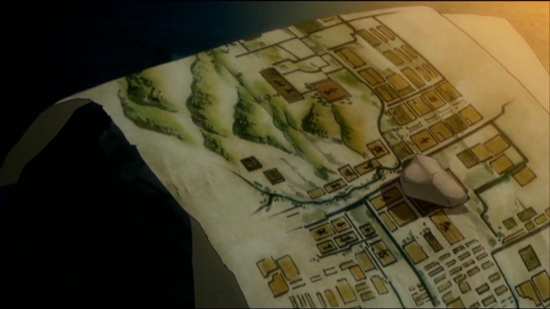
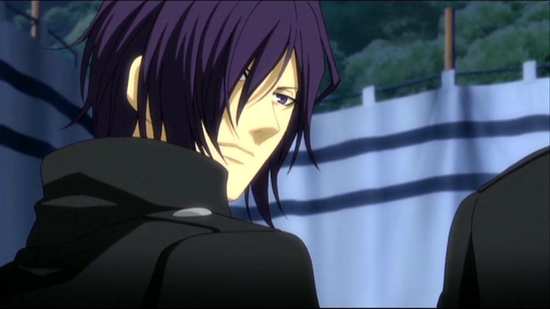
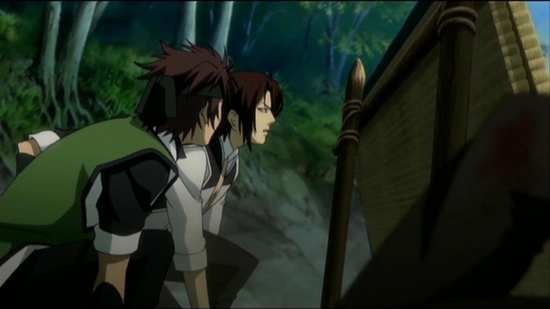
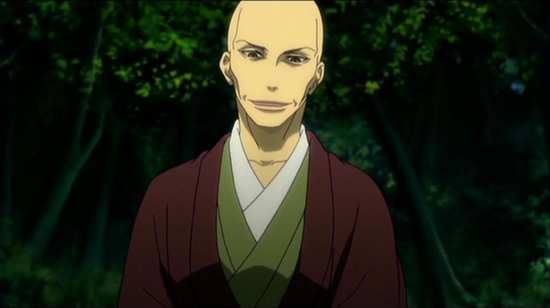
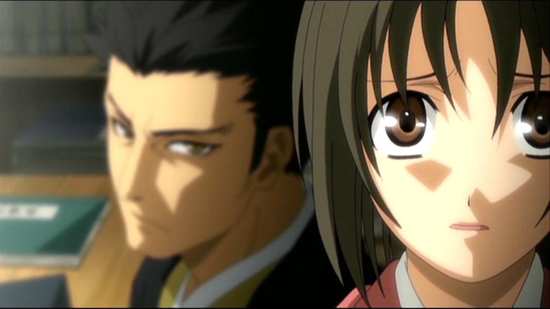
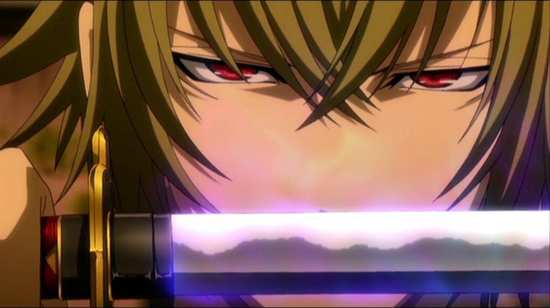
Your Opinions and Comments
Be the first to post a comment!